
Nick Abbot 10pm - 1am
13 November 2019, 17:35
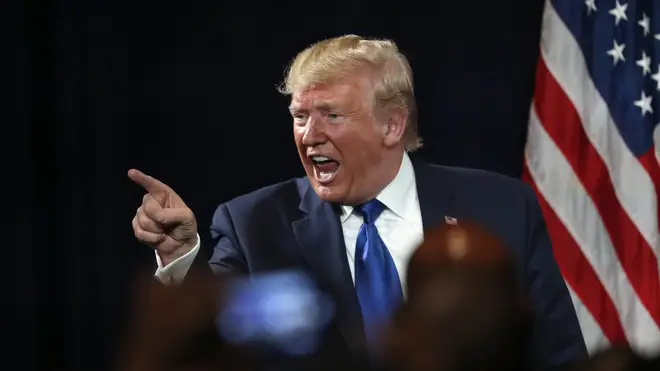
US Congress has launched its first public hearing of the Donald Trump impeachment inquiry today with three witnesses set to testify this week.
President Trump has come a step closer to learning his eventual fate today as a public hearing got underway that could pave the way for his removal from office.
Congress is seeking to determine whether the 45th President of the United States of America abused his power by pressurising Ukrainian officials for personal political gain.
Adam Schiff, the Democratic chairman of the House Intelligence Committee, said "the matter is as simple and as terrible as that."
Mr Trump denies the accusation that he withheld $400 million of military aid from Ukraine in order to coercing Kiev into digging up dirt on his political rival and Democrat nominee Joe Biden.
But questions have arisen following a leaked phone call between the US leader and the Ukrainian President Volodymyr Zelensky.
"Our answer to these questions will affect not only the future of this presidency but the future of the presidency itself, and what kind of conduct or misconduct the American people may come to expect from their commander in chief," Mr Schiff added.
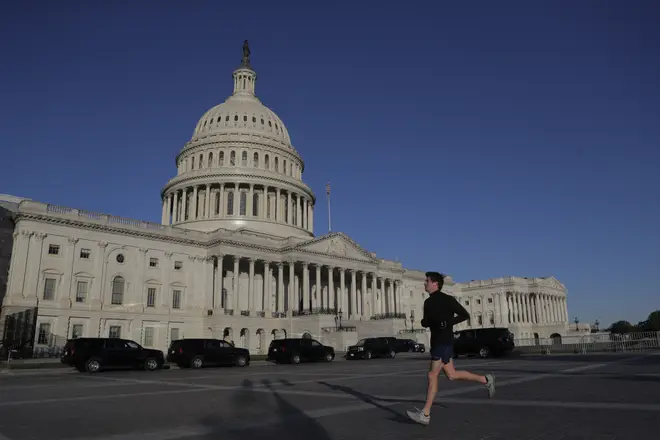
Impeachment is a charge of misconduct made by a legislative body against an official in a public office, including the president.
In Donald Trump's case, elected officials in Congress (the UK equivalent of the Houses of Parliament) are levelling charges against his conduct.
If successful, impeachment does not necessarily lead to removal from office and it is not a criminal trial.
However, it is the first step in the eventual downfall of a high-level official and will form the basis of a trial.
The US Constitution makes it clear that a president "shall be removed from office on impeachment for, and conviction of, treason, bribery, or other high crimes or misdemeanours."
Several officials have already testified in private, however today is the first public hearing in the process.
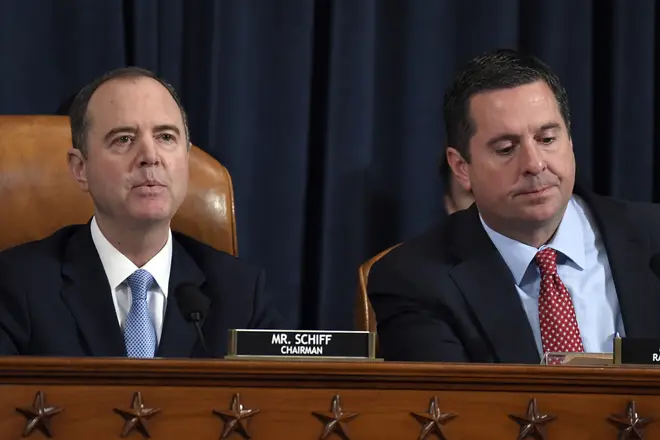
From the day Mr Trump took office there have been voices calling for his impeachment.
They became more vociferous during Robert Mueller's investigation of Russian interference in the US election, but softened when the results came back inconclusive.
But after a phone call between the US and Ukrainian Presidents in July, talk of impeachment has become louder and more assured.
An unnamed intelligence official blew the whistle on what they heard in that conversation by filing a formal complaint expressing their concern.
A rough transcript of that phone call was released, revealing the US leader had encouraged President Zelensky to look in to discredited allegations against his Democratic rival Joe Biden, as well as his son Hunter.
The conversation in question came shortly after Mr Trump blocked millions of dollars' worth of military aid to Kiev. In effect, the accusation being made is that he abused his power to influence a foreign country to meddle in the 2020 election. The Democrats believe this is an impeachable offence.
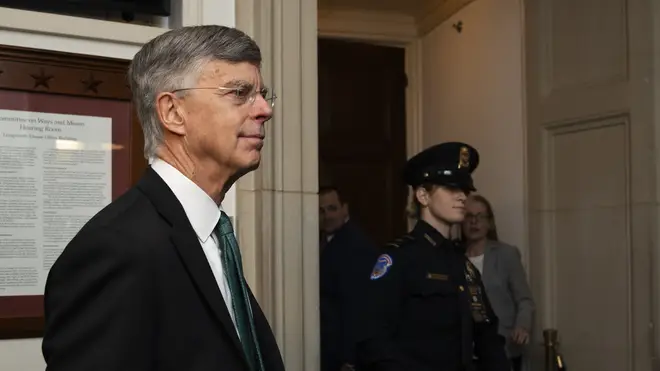
First up will be William Taylor, the USA's top diplomat in Ukraine. In now disclosed text messages, he expressed his concern about Mr Trump's administration pressuring Ukraine to open investigations that could help the US President.
In a private testimony, Mr Taylor spoke of a foreign policy channel that he believed undermined US national security interests and recalled a video conference in which a woman from the White House said aid to Ukraine was being delayed on the orders of the president.
Second will be George Kent, the deputy assistant secretary of state for European and Eurasian affairs. Mr Kent has also already given a private testimony, during which he made accusations about Mr Trump's personal lawyer Rudy Giuliani.
The State Department official explained how Mr Giuliani failed to remain impartial over US support for Ukraine by pushing the country to being political investigations into the Bidens.
We will also be hearing from Marie Yovanovitch, former US ambassador to Ukraine, on Friday. She was removed from this role in May following criticism from Mr Giuliani, who said she was failing to support the President's policies.
Ms Yovanovitch's private testimony detailed how Trump's personal lawyer saw her as an obstacle to achieving their business interests. She also said she was told to "watch my back" because of her position.
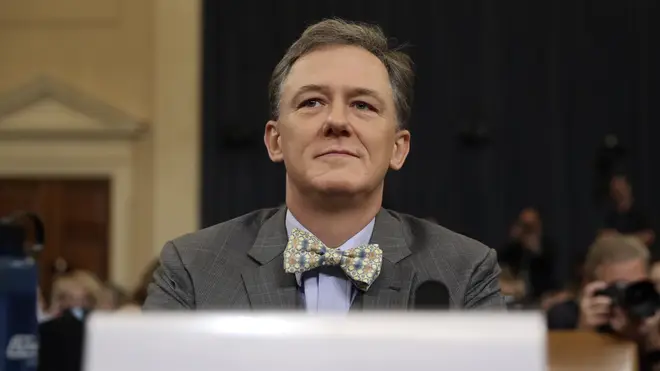
Once the intelligence committee, who are overseeing the inquiry, finish their investigations and hearings, an article of impeachment will be sent to the House of Representatives.
The House will vote on whether or not they agree on impeaching the president and will only need a simple majority for impeachment to be successful, otherwise Mr Trump will remain in office.
It would then be passed to the Senate, which is dominated by Republicans, where a trial will be conducted to decide whether the president should be removed from office.
This will require two-thirds of the Senate to agree, which is unlikely given the dominance of the Republican Party, and has never been reached in US history.
Therefore, Mr Trump could well be successfully impeached before the end of the year but could survive the Senate vote and end up going on to win a second term in office in 2020.

The only Presidents to be successfully impeached were Bill Clinton in the late 90s and Andrew Johnson more than a century before in 1868.
Mr Clinton was impeached for perjury and the obstruction of justice surrounding his affair with Monica Lewinsky. He was found to have lied about the relationship and urging her to give a false story as well. President Johnson was accused of a number of things, including firing his secretary of war against the will of Congress.
However, both presidents survived the embarrassment of being removed from office as a vote for conviction failed to get the backing of two-thirds of the Senate.
President Richard Nixon resigned from office in 1974 in order to escape impeachment over the Watergate scandal.
If Trump is successfully impeached and then removed from office, his successor will be Vice-President Mike Pence.